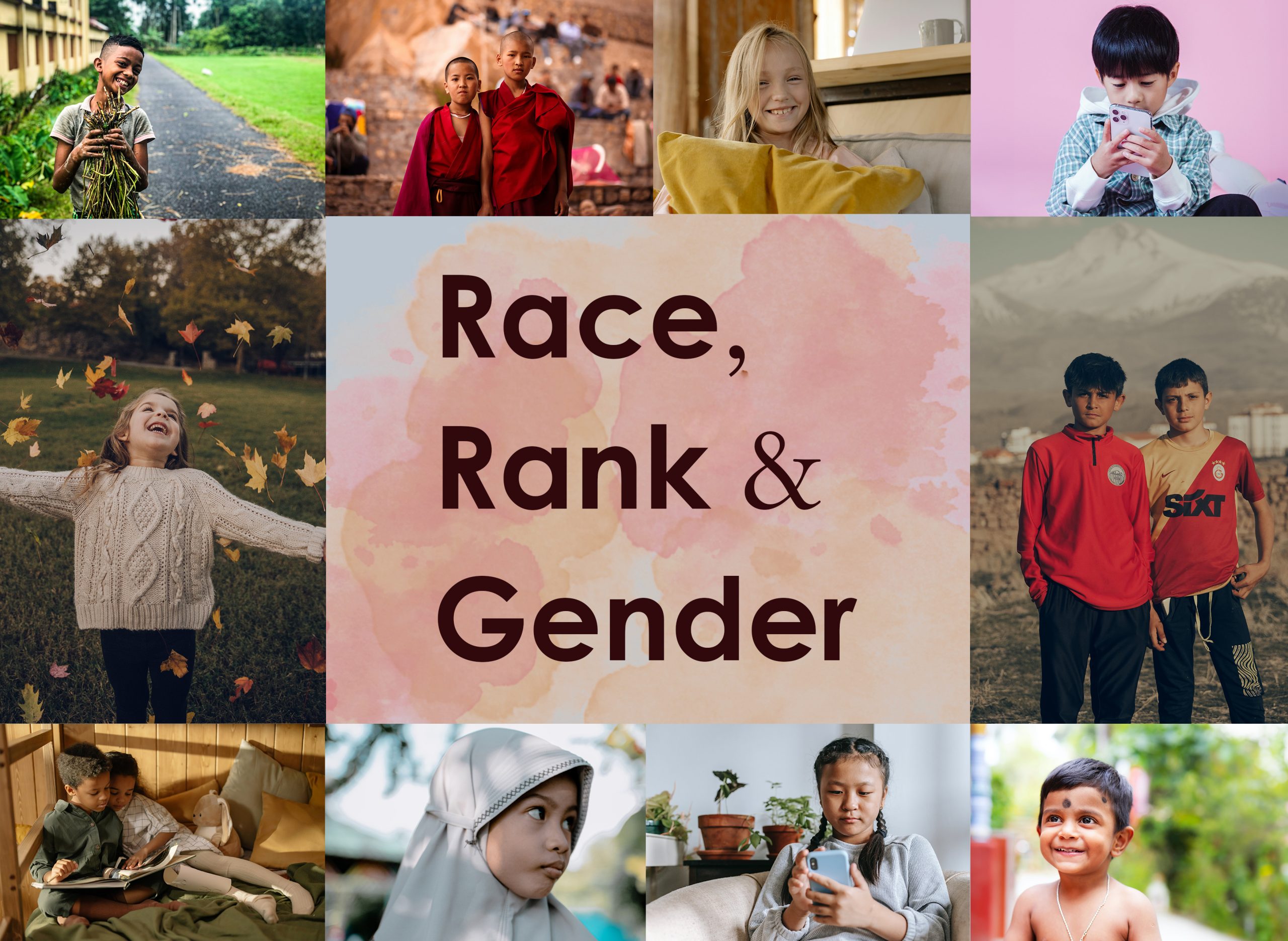Talk 3 | Race, Rank and Gender
Whilst on a teacher training event in Nepal, I visited a hostel for Badi girls who had been rescued from sexual slavery, to be either educated in the Christian school or the Christian Vocational school. These girls were discriminated against on many levels. In this Hindu culture, they were part of the ‘untouchable’ caste, so the poorest of the poor. As girls in impoverished and desperate families, there was intergenerational subservience, where they were trafficked to satisfy the sexual cravings of men. They were, according to some, ‘the worthless dust of Nepal’.
In our current western culture, they would regard as ‘the oppressed’, who will be powerless to rise above their group identity, for in a post-truth‑ culture, individuals are seen through the lens of race, rank, gender and sexual identity. This is where the forces of culture or community are absolutised or idolised. Identity politics based on the group you belong to is an ideology which “is a belief system that sustains and provides rational legitimisation for the idolatry that is being practised.” [1]
This is dehumanising, as individuals are seen as powerless to rise above their communities. Their individual identity disappears into group identity. This leads to a reductionist view of personhood, that some will not succeed because they are black or white, man or woman, or belong to a particular economic class or sexual orientation.
The lesson of history is that ideologies anchored in a ‘god’ are always destructive to human flourishing. Nazi belief was organised around the idol of the Arian race and so those who did not fit this identity, Jews and Gypsies, were exterminated. Marxism, organised around the idol of economic class, destroyed those who didn’t fit this identity, such as the capitalists and Christians who were imprisoned and executed. Violence and barbarism are the end result of idolatrous ideologies. In our culture, we see a resurgence of those who have adopted victimhood as a defining way of life and ‘to be colour blind’ is the language of oppression.
Throughout history, the Bible has told a different story, as God has raised up His followers to enact the way of God’s Kingdom. The great rejection of identity politics is in Martin Luther King’s, ‘I have a Dream’ Civil Rights speech delivered in 1963. He argued that the nation should live up to its founding constitution ‘that all men are created equal’ and society’s institutions are ‘colour blind’. This constitution was based on the equality of all people and was anchored in the Word of God. He drew his inspiration from his Christian faith, fighting peacefully for African Americans to be recognised as people created in the image of God and not to be typecast by the colour of their skin.
How do we as Christian teachers enact our counter‑cultural story in our communities? Philosopher, Anthony de Mello, reminds us of our common humanity, “We’re all the same. You’ve got a thin veneer of culture that’s different, but deep down, all the same. The same problems are everywhere. The hatred is the same. The dependence on people’s opinions and the emotional dependence on approval are the same. It’s exactly the same. Just scrape off the exterior culture and we’re all the same.” [2]
Let’s return to the children and young people in Nepal. In their Christian schools, their teachers were a community of transformed individuals who saw each student through a Gospel ‑shaped lens, not the lens of race or culture, and they acted justly and mercifully as an overflow of their response to the Lord Jesus. The smiles on the children’s faces reflected the joy and gratitude they experienced despite the terrible treatment that had been inflicted upon them. But no longer were they merely victims, but image‑bearers of inherent worth and dignity. For the Cross demonstrates that love can take the worst that humans have done and can do, absorbs it and defeats it. “The Bible’s liberating promise is that it is possible to transcend the sin and brokenness of our natural communities because our primary identity is to be children of God.” [3]
In their school, they were no longer seen as the lowest caste and the girls were treated as equals to the boys, for in the family of God, “there is neither Jew nor Greek, slave nor free, male nor female, for you are all one in Christ.” (Galatians 3: 28). What a beautiful counter‑cultural community that is a shining light in a Hindu culture, where a person’s identity is defined by their caste. How does my school demonstrate that it is a counter‑cultural community in your society where each individual student is created to have a personal relationship with the Lord Jesus and to be set free to fulfil their God given purpose to be agents of re-creation to bless others.
Let us be reminded that in a Christian school, the way we live and learn together is to reflect this new way of being human. It is to be a grace filled‑ community where there is unity because we are loved and redeemed by Christ and where we love one another, no matter what a person’s race or culture. The truth of God’s Word is the foundation on which we build; for God’s revelation is great and majestic, bestowing on humans a reflected splendour. As St. Augustine said of God’s revelation, “wonderful is the depth of thy oracles, whose surface is before us, inviting the little ones; and yet, wonderful is the depth, O my God, wonderful is the depth. It is awe to look into it; an awe of honour and a tremble of love.” [4]
Grace and Peace
The Excellence Centre Team
[1] Tom Wright, Spiritual & Religions – The Gospel in an Age of Paganism, (London: Society for Promoting Christian Knowledge, 2017), 30
[2] Edited by Dr Kevin Donnelly, Cancel Culture – And the Left’s Long March, (Melbourne: Wilkinson Publishing, 2021), 123
[3] Nancy R. Pearcey, Love Thy Body – Answering Hard Questions about Life and Sexuality, (Grand Rapids: Baker Books, 2018), 260
[4] Aurelius Aurelius, Confessions, (New York: Random House, 1948)

